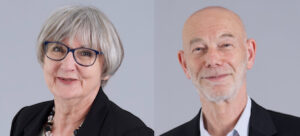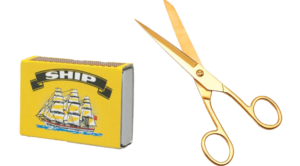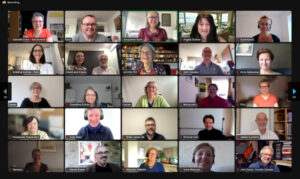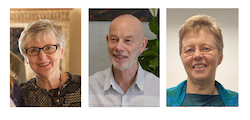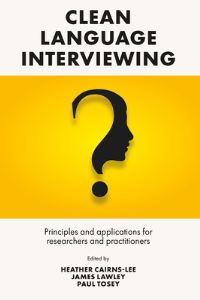The Medical Foundation (MF) is a human rights organisation that exists to enable survivors of torture and organised violence to engage in a healing process to assert their own human dignity and worth. Our concern for the health and well-being of torture survivors and their families is directed towards providing medical and social care, practical assistance, and psychological and physical therapy. It is also our mission to raise public awareness about torture and its consequences. torturecare.org.uk
 Since adolescence Nazim has been forced to answer questions, many of them accusatory, designed to incriminate him, asked under interrogation and accompanied by acts of torture. He is a Kurd, born and raised in a remote village in eastern Turkey. His life has been marked by regular instances of detention and violence at the hands of Turkish authorities and forces. Before being referred to the Medical Foundation in early 2001, following a period of hospitalisation, he had not communicated his painful experiences to anyone, not even his family. He explains he grew up in a culture where people did not feel safe talking about such things.
Since adolescence Nazim has been forced to answer questions, many of them accusatory, designed to incriminate him, asked under interrogation and accompanied by acts of torture. He is a Kurd, born and raised in a remote village in eastern Turkey. His life has been marked by regular instances of detention and violence at the hands of Turkish authorities and forces. Before being referred to the Medical Foundation in early 2001, following a period of hospitalisation, he had not communicated his painful experiences to anyone, not even his family. He explains he grew up in a culture where people did not feel safe talking about such things.
He remembers he was 6 when his paternal grandfather died while being held as a political prisoner. Aged 7, Nazim watched as soldiers brought a body down from the mountains to his village. Adults were made to gather round to identify the dead man who had been shot in the head and chest. Nazim saw the dead man’s parents look on without acknowledging that the corpse was that of their son. He understood and accepted their need for keeping silent, but links this incident to the loss of any chance he might have had to grow up in the way he believes children should.
When he was 8 or 9 Nazim first witnessed his home being raided by Turkish forces. At around this time his uncle was shot while out working in his fields. Kurds in his village were pressured by guerrillas to provide food and threatened if they did not. Turkish authorities used terror to prevent any support being given to guerrillas.
At 15, for no particular reason, Nazim was detained and tortured by heavily armed paramilitary police. He recalls being led, handcuffed and blindfolded, to an interrogation room from which he had heard the screams of other detainees. During interrogation he was hit on his right wrist by a truncheon with such force that his wrist was broken. He was also hit with a wet rope on his back and made to endure falaka – beating on the soles of his feet. As a precondition for the torture to cease he was encouraged by his interrogators to admit to being a terrorist. Nazim was not, and has never been, a member of any political organisation advocating violence.
Nazim describes his response to torture: “Your whole soul changes. You were a clean, innocent kid and you became a rough child out to protect yourself… Your way of looking at other people changes. You don’t trust closeness. You can’t tell anything to even the closest people.”
These changes in mental outlook meant that Nazim found his experiences extremely difficult to recount, and yet common enough as to seem unworthy of note. His psychotherapist at the MF Paul Burns explains: “Nazim appeared to accept that his experiences of detention and torture were normal. It was important that he appreciate his experiences were significant personal events, even though many others have also been mistreated.”
Early on in the process of recording his life-story, Nazim would often become unresponsive, staring down at the floor during therapy, saying nothing. At the time he was facing accommodation problems, “he was in a very bad space” says Paul. To increase his chances of recovery, and to provide documentary evidence supporting his application to stay in the UK, it was necessary for Nazim to communicate his experiences as fully as possible. Yet at times Nazim was too distressed to talk about traumatic events. A less direct way of working with his experiences was needed.
Working closely with Nazim and Paul was Richard McKane, a poet with fifteen years experience of interpreting at the Medical Foundation and a leading translator of Turkish and Russian poets. Paul and Richard noted and appreciated Nazim’s use of images to describe his thoughts and emotions. ‘Symbolic Modelling’ was chosen as part of Nazim’s therapy to assist him to identify and explore the metaphors that had come to represent his experiences. Paul was encouraged to try this approach with an interpreter because of Richard’s interest in this approach and his experience as a translator of poetry.
Paul has not used the Symbolic Modelling approach with other MF clients in the past, due to the demands placed upon the interpreter in dealing with such subtleties of language. Fortunately the three mainstays of Richard’s life, poetry, translating and interpreting converged to offer particular assistance in this case.
Nazim seems embarrassed to be described by Paul and Richard as “naturally poetic”. He argues that this description belongs to great Turkish writers such as Oktay Rifat and Nazim Hikmet, (the latter providing a fitting pen-name for our client). Nazim recalls these poets, both of whom have been translated by Richard, with deep respect. He identifies particularly “His fate is clear,” he says, referring to the poet’s years in exile. “The last words of Hikmet were ‘my country, my country’.”
Below we publish Nazim’s written account of his early life, translated by Richard. Writing mostly alone, but also as part of Sonja Linden’s writing group at the Medical Foundation, Nazim says he “wants to hold up before people the conditions we [Kurds] live in.” He describes his style as “realistic and simple” but this does scant justice to his evocative recollection of childhood, in which the reader is made to see through a child’s eyes the “world’s badnesses, uglinesses and beauties.” In Nazim’s imagination birds are seen to “celebrate” and nature is described as “festive.”
In spite of Nazim’s humble protestation that “poets have to be inspired”, his bittersweet recollection of home is filled with the same compelling details, visual and immediate, that tumble out of him in conversation. He is a quietly spoken man, speaking tentatively, with deliberation rather than calculation; reluctant to answer until he is sure he has fully understood a question. When talking with him, one is struck by his natural use of metaphors, pregnant with meaning, which combine to form whole and distinctive pictures of his sense of self and his understanding of what torture has done to him. Paul adds, “Nazim is unusual in the extent to which he uses graphic metaphor and the way in which he develops themes around his images.”
To limit their influence on Nazim’s metaphors both therapist and interpreter used ‘Clean Language’. Clean language questions encourage a client to explore metaphors without leading or interpreting. One advantage of this, Richard explains, is that, “the session is one that is perceived by the client as the total opposite of an interrogation under torture.”
While not seeking to create ‘art’ clean language therapy does often lead to poetic speech. When asked about his emotions, following an initial rejection of his asylum application, Nazim says he feels like “prey in the lion’s claws, and the lion can tear me apart at any moment.” Paul is confident that a successful appeal will aid Nazim’s recovery, and is hopeful that since UK authorities have accepted Nazim was tortured, from documentation provided by the Medical Foundation, he will be allowed to find a safe home here.
Only the Medical Foundation provides the combination of treatment, support and advice that Nazim continues to need. He also benefits from an MF psychiatrist, GP and legal advisors. He evidently enjoys a warm rapport with his therapist, “Paul and I get on very well – I don’t know why,” he says to general laughter. Although Nazim has made some positive progress there are still days when he is depressed and less able to communicate. He wishes to continue to write and says his new and much improved accommodation is helping him to think more clearly.
Asked if there is anything he would like to say to our supporters, Nazim talks about the Medical Foundation staff, invoking a startling image worthy of William Blake. “I would say, support these angels and their wings so that they can fly freely. Then they will capture more souls out of the clutches of the Angel of Death.”
[Below is Nazim’s story]
Paul Burns has been a Medical Foundation volunteer since October 2000. As well as providing private psychotherapy he consults in organisation development. He is a member of the European Society for the Study of Traumatic Stress and a founder member of the NLPtCA, the Neuro-Linguistic Psychotherapy and Counselling Association.
Richard McKane has worked as a Turkish and Russian interpreter for the Medical Foundation in London for over fifteen years. He has translated Russian and Turkish poems and published his own poems both in Turkey and in the UK.
My Kurdish Childhood in a Turkish Village
by Nazim (Translated by Richard McKane)
 On January 1st 1970 I came into the world unaware of the world’s badness, ugliness and beauty. I grew up experiencing the good and the ugly in a village that couldn’t be counted as very lucky in a humble family of four children.
On January 1st 1970 I came into the world unaware of the world’s badness, ugliness and beauty. I grew up experiencing the good and the ugly in a village that couldn’t be counted as very lucky in a humble family of four children.
Our house was made of half timber, half brick and that’s where my childhood started out. But I could never forget that house, it was a humble house for me and my family. It had two rooms made of earth and a roof made of earth and wood. In winter it was very cold and my four brothers and sisters and I slept in the same room, huddled together so as not to get cold and told stories and swung our legs. But despite all this we were a happy family. It was a village without a hospital, without a shop, far from the city and in winter the roads were closed for five months. If, God forbid, you got ill, either the old women would give you medicines or the hoja would read things over you and blow on you and with luck you’d live through it or by God’s will you’d swiftly die and be buried.
But spring was incredibly beautiful, nature became festive, the trees and flowers opened out, the meadows turned green. The birds celebrated, the waters swelled and flowed noisily. Children’s voices, birdsong and the sound of the trees swayed by the wind mixed together on all sides. But it was a pity that we were not able to experience these beautiful things to the full. I was a Kurdish Alevi child and I couldn’t run around with the kids my age, or play with them or talk with them, because mothers or older brothers would come and break up those good childhood games or they’d move away from us and say “Come little one, come brother, these are dirty, bad people, don’t play with them.” As for me I looked at my childhood’s purity and innocence and wondered what was dirty about it and couldn’t find anything. Yes, the clothes I wore were a little different, but these clothes were what my ancestors or grandparents wore traditionally.
We had when the children especially enjoyed themselves and were happy. Best clothes were got ready, the traditional clothes our mother had sewn for us like trousers with the elasticated waists. On one of those days our father bought us new rubber shoes made out of tires. I will never forget the good smell by my head. Mother also knitted new wool socks for us. We didn’t sleep all night since we were waiting for the holiday morning with excitement and impatience. We got up in the morning and the first thing we did was to go and kiss our parents’ hands and wish them a good holiday.
The aim of the holidays was to help the poor and make peace among those who were angry and offended. They were days when the grown-ups and the children should respect and care for each other. This is why we celebrated the holidays. However it never happened like this for us. Some homes didn’t even give us sweets. Sometimes the big Turkish kids caught us and grabbed the sweets from our hands that we had gathered with great hope and excitement..
In time you begin to get used to grazing the lambs and even take pleasure in them. They crop the fresh grass. We gave them all different names and it was interesting when we called them by their names and the lambs came up to us bleating: believe me there is no better thing. All your tiredness is taken away especially when you play the shepherd’s pipe to them and they listen as you shared your woes and talked to them. And when it’s time to go back with the sheepdog, the dear lambs and the sucking lambs, they get into a single line with you calling them behind you as they make their way home to their mothers: this is a wonderful, beautiful thing. And when they come home and there are mothers bleating and they call and run to them for milk: that’s another wonderful, beautiful thing. One of the things that amazes me is how among the hundreds of sheep the lambs and mothers find each other.
Of course when I got back I immediately lay down and fell asleep on the mattress my mother had laid out for me. You can’t imagine how much I miss all this. This is my childhood life in my village from one to seven years old. It’s a life that is difficult to describe.
Thanks to the Medical Foundation and Nazim for allowing this article to be made available here.


